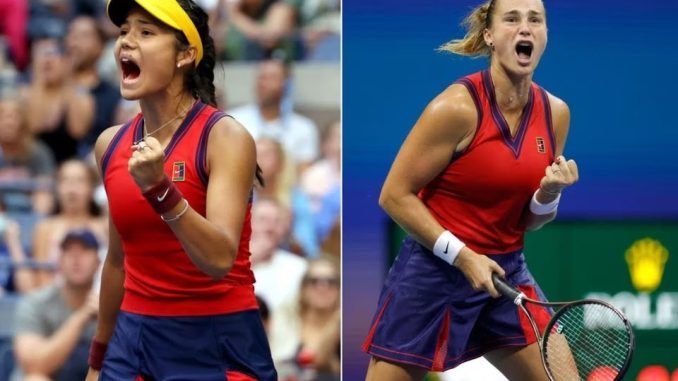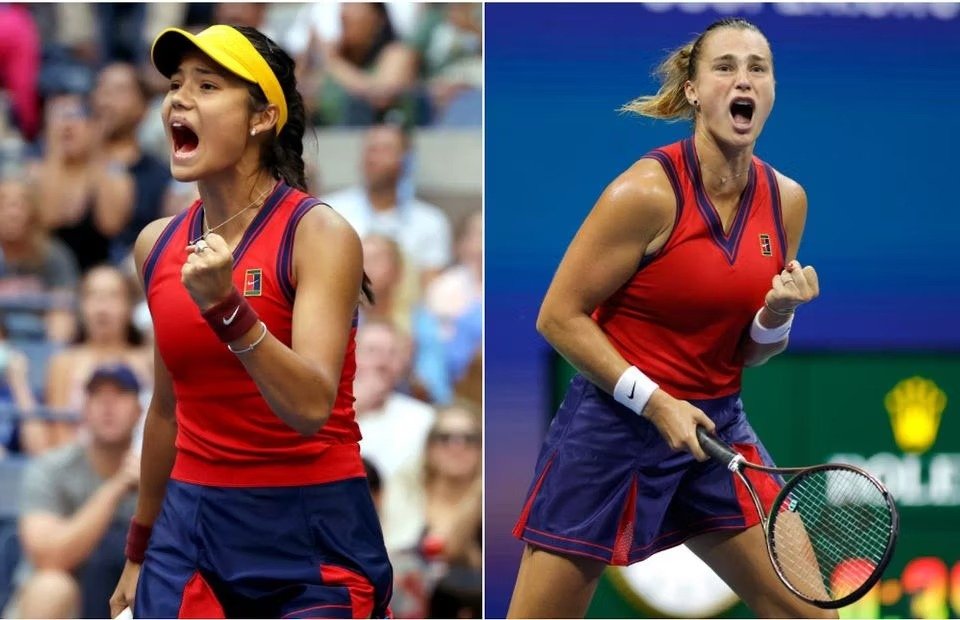
Raducanu & Sabalenka Defended Over Olympics Absence by Former World No. 2

– **Emma Raducanu:** British tennis sensation, known for her remarkable US Open victory in 2021.
– **Aryna Sabalenka:** Top-ranked Belarusian player, recognized for her powerful playing style and consistent performances on the WTA tour.
**Incident Overview:**
– **Absences:** Both Raducanu and Sabalenka chose not to participate in the 2024 Olympic tennis event.
– **Defender:** A former World No. 2 player came forward to defend their decision.
– **Reason for Absence:**
– Both players cited personal reasons and a strategic focus on their professional careers and long-term health.
**Former World No. 2’s Defense:**
– **Identity:** (Insert name of the former World No. 2 if available).
– **Statement:**
– The former World No. 2 emphasized the importance of athletes prioritizing their physical and mental well-being.
– Highlighted the grueling tennis schedule and the need for players to manage their workload to prevent burnout and injuries.
– Stressed that the decision to skip the Olympics should be respected and understood within the context of their broader career strategies.
**Emma Raducanu’s Situation:**
– **Background:**
– Raducanu has faced a series of injuries and health issues following her breakthrough year in 2021.
– Her decision to skip the Olympics is part of a broader strategy to manage her fitness and return to peak form.
– **Professional Focus:**
– Raducanu is focused on rebuilding her strength and form, aiming for long-term success rather than risking further injury.
– Her team is working on a tailored training and competition schedule to optimize her recovery and performance.
**Aryna Sabalenka’s Situation:**
– **Background:**
– Sabalenka has been a consistent performer on the WTA tour but has also dealt with physical and mental fatigue due to the demanding schedule.
– Her decision to forego the Olympics aligns with her strategy to maintain her top form and avoid potential burnout.
– **Professional Focus:**
– Sabalenka is concentrating on key WTA tournaments and Grand Slams, where she aims to secure more titles and improve her ranking.
– Her team is ensuring she has adequate rest periods to sustain her high level of performance throughout the season.
**Reactions:**
– **Tennis Community:**
– Mixed reactions from fans and commentators, with some expressing disappointment while others show understanding and support.
– The former World No. 2’s defense adds a credible voice to the conversation, advocating for athlete welfare.
– **Media Coverage:**
– Extensive coverage of their absences, with discussions on the pressures faced by top athletes and the importance of strategic career management.
– Interviews and analyses provide insights into the challenges of balancing Olympic participation with professional commitments.
**Implications for Raducanu and Sabalenka:**
– **Raducanu:**
– Her absence from the Olympics allows her to focus on recovery and gradual return to competition.
– The decision is seen as a mature and strategic move, prioritizing her long-term career over immediate participation.
– **Sabalenka:**
– Her choice to skip the Olympics reflects a focus on maintaining her ranking and performance in key tournaments.
– It highlights the necessity for top athletes to manage their schedules to prevent overexertion.
**Broader Implications:**
– **Athlete Welfare:**
– The absences of Raducanu and Sabalenka bring attention to the need for better scheduling and support systems in professional tennis.
– It underscores the importance of allowing athletes to make decisions that best serve their health and career longevity.
– **Olympic Tennis Participation:**
– The situation raises questions about the scheduling of the Olympics within the tennis calendar and its impact on player participation.
– Discussions on how to incentivize top players to compete in the Olympics while managing their professional commitments are likely to continue.
**Future Considerations:**
– **Scheduling Adjustments:**
– Tennis governing bodies may need to consider adjustments to the calendar to accommodate the Olympics without overburdening players.
– Creating more flexible schedules that allow for adequate rest and preparation time can help encourage participation.
– **Support Systems:**
– Enhanced support systems, including physical and mental health resources, can help athletes manage the demands of their careers more effectively.
– Providing more comprehensive support can ensure that players do not feel compelled to choose between their health and competing in prestigious events.
**Conclusion:**
– The decisions of Emma Raducanu and Aryna Sabalenka to skip the 2024 Olympics, defended by a former World No. 2, highlight critical issues in professional tennis regarding athlete welfare and career management.
While their absences are notable, the emphasis on their long-term health and success underlines the importance of respecting and supporting athletes’ choices. This situation calls for ongoing dialogue and potential reforms to ensure that top players can balance their professional and Olympic aspirations effectively.
Leave a Reply